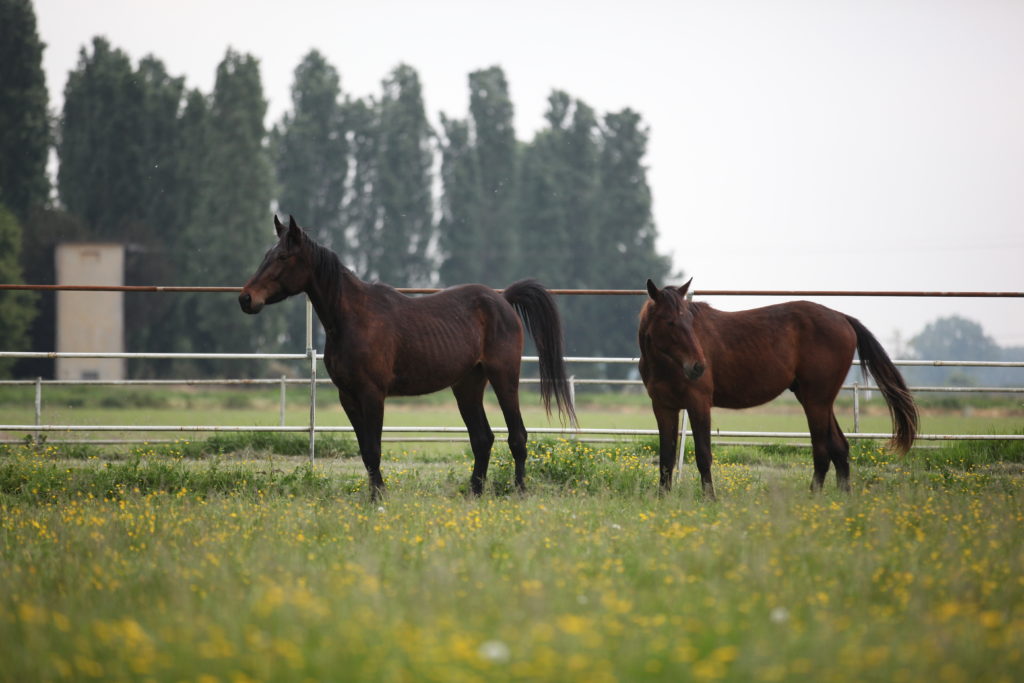
Full Professor of Infective Diseases in Animals
Department of Veterinary Science, University of Turin
.
As known by those who are well-informed, the Herpes Virus (in its most frequent form EHV-1 and EHV -4) has been in circulation for years under the name Equine Rhinopneumonia, traditionally causing abortions as well as other problems in pregnant broodmares and that is why they are usually vaccinated when in foal. In what way is this neurological ‘variant’ different as it spreads so fast with such serious and lethal neurological consequences?
Professor Rosati: “EHV1 and EHV4 are distinct species with different biological characteristics. Both cause respiratory illness, but only the EHV1 strains are associated to abortions and neurological forms due to a particular affinity for the walls of blood vessels (endothelia). The neurotropic strains of EHV1, hence those that affect the nervous system, are almost always variations that present a mutation identifiable using modern molecular diagnosis methodologies. Hotspots of the neurological disease are periodically notified in various parts of the world but are now increasing at a worrying rate. One of the problems that makes it difficult to predict hotspots of this neurological disease is the lack of diagnosis in latent carriers of the invasive neurological strains. The search for antibodies also provides little information since it is not possible to identify and distinguish vaccinated animals from those latently infected.
If it is so dangerous, how is it that this vaccine has not been made compulsory and registered on horses’ passports as is done for equine influenza? Could this current spread have been avoided or not if horses had always been regularly vaccinated with the vaccine commonly used for broodmares in foal?
Professor Rosati: “Although vaccination protocols are well-consolidated, their effectiveness is limited to reducing the seriousness of clinical forms and in particular respiratory issues. Studies concerning the effectiveness of preventing abortions and even more the neurological forms are limited and conflicting and there is a degree of consensus among researchers in considering vaccinations an important but insufficient solution if not accompanied by suitable practical management of bio-security“.
What about ethics and respect for the principles that regulate the lives of horses in nature? Is it possible to interpret this situation, which is comparable to COVID in humans through contact and spreading, as a sort of rebellion by nature? Horses nowadays face exhausting travel schedules, continuous changes of climate and environment, of food, constant competitions and stress in many different forms. Does the stress to which sports horses are exposed lower their immune defence systems exposing them to risks such as this epidemic?
Professor Rosati: “Unfortunately herpes infections are characterised by a devious maintenance strategy in nature and those affecting horses are no exception. They are the cause of chronic infections characterised by latent periods (during which the virus hides extremely well in the body and the immune system is not able to recognise it) alternating with reactivation periods (that coincide with excretion phases). The reactivation of the latent infection is conditioned precisely by stress factors and those mentioned above (exhausting journeys, environmental and food changes, tiredness) match perfectly with the spreading strategy, increasing the risk that a ‘perfect storm’ might appear, coinciding with events attended by many horses coming from different locations”.

Latent viruses:
The Herpes viruses are unfortunately very devious. They are in fact able to cause latent infections and hence remain dormant in cells without multiplying. In practice it is as if they remain hidden even for long periods, to then be reactivated in the presence of stress. In human beings the most common example is that of the Herpes virus affecting the lips, which coinciding with periods of stress experienced by the body, are reactivated and appear in the form of the those typical and very bothersome vesicles. The person with a latent infection is known as a carrier.
The Herpes Virus is a disease that must be reported exactly like COVID: This means that when there is a case it is compulsory to report it to the health authorities so that all protective and control measures can be implemented.
